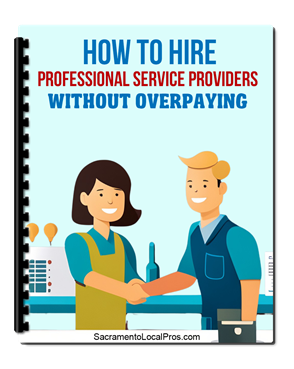Are you in need of a Certified Public Accountant (CPA) to help you navigate the complex world of taxes and financial planning?
Finding the right CPA can make all the difference in ensuring your financial success and peace of mind.
With so many options out there, it can be overwhelming to know where to start.
That's why we have put together a list of 10 tips to help you find the best CPA for your needs.
1)) Ask For Recommendations
One of the best ways to find a reliable CPA is by asking for recommendations from friends, family, or colleagues.
Getting referrals from people you trust can give you valuable insights into their experiences with different CPAs.
Tips For Getting Recommendations:
- Talk to Trusted Sources: Reach out to friends, family, and colleagues who have used CPAs in the past and inquire about their experiences.
- Use Professional Networks: Utilize professional networks or associations that you are a part of to find suggestions for reputable CPAs.
- Engage in Online Communities: Participate in online forums or social media groups dedicated to personal finance or business management to gather recommendations.
- Consult Your Financial Advisor: If you already have a financial advisor, ask them for suggestions. They often work closely with CPAs and can provide reliable referrals.
- Check Reviews and Testimonials: Look for online reviews and testimonials on platforms like Yelp, Google, or the CPA's own website to gauge the experiences of other clients.
Gathering recommendations from trusted sources is an effective way to narrow down your choices and find a CPA who is reputable and competent.
By leveraging personal connections, professional networks, and online resources, you can make a more informed decision and select a CPA who meets your financial needs and expectations.
2)) Check Credentials
When looking for a CPA, it's important to check their credentials. Make sure they are licensed and have the necessary certifications to handle your financial matters.
You can verify their credentials through state boards or professional organizations.
Tips For Checking Credentials:
- Verify Licensure: Ensure the CPA is licensed to practice in your state by checking with the State Board of Accountancy.
- Confirm Certifications: Look for additional certifications such as a Personal Financial Specialist (PFS) or Accredited in Business Valuation (ABV), which indicate specialized expertise.
- Review Educational Background: Check the CPA's educational history to ensure they have undergone the necessary training and coursework.
- Examine Professional Memberships: Confirm that the CPA is a member of reputable professional organizations like the American Institute of CPAs (AICPA) or state-specific associations.
- Inspect Disciplinary Records: Search for any past disciplinary actions or complaints against the CPA through state regulatory bodies or online databases.
Verifying the credentials of a CPA ensures that you are entrusting your finances to someone who is not only qualified but also adheres to professional standards and ethical guidelines.
By taking the time to confirm licensure, certifications, educational background, and professional memberships, you can have greater confidence in the CPA's ability to manage your financial needs accurately and effectively.
3)) Look For Experience
Experience matters when it comes to handling finances. Look for a CPA who has experience working with clients in similar situations as yours.
They will have the knowledge and expertise to provide you with the best advice and solutions.
Tips For Evaluating Experience:
- Review Their Client Portfolio: Ask the CPA about the types of clients they have worked with in the past, focusing on those with similar financial needs or industry backgrounds.
- Check Years in Practice: Inquire about how many years the CPA has been practicing, as more years often correlate with a deeper understanding of financial nuances and tax laws.
- Seek Industry-Specific Experience: If you are in a particular industry, look for a CPA who has experience working with businesses or individuals in that sector. Industry-specific knowledge can be invaluable.
- Ask About Case Studies: Request examples of how they have handled complex financial situations or challenges similar to yours. This can give you insight into their problem-solving abilities.
- Consult Testimonials and References: Speak with other clients or read testimonials to gain an understanding of the CPA's success in achieving favorable outcomes for their clients.
Selecting a CPA with relevant experience is crucial for receiving specialized and effective financial guidance.
By reviewing their client portfolio, years in practice, industry-specific expertise, case studies, and testimonials, you can ensure that the CPA is well-equipped to handle your unique financial situation.
This careful evaluation of experience will help you find a CPA who can provide tailored advice and solutions to meet your financial goals.
4)) Consider Specializations
Some CPAs specialize in certain areas such as tax planning, auditing, or business consulting.
Depending on your needs, look for a CPA who has expertise in the specific area that is most important to you.
Tips For Considering Specializations:
- Identify Your Needs: Determine the specific financial areas where you need assistance, such as tax planning, estate management, or business auditing. This will help you focus on CPAs with relevant expertise.
- Research Their Specialty: Investigate the CPA’s background to understand their specialization fully. Look for any additional certifications or coursework that highlight their proficiency in that area.
- Look for Relevant Experience: Evaluate if the CPA has substantial experience working specifically within the specialization you require. Experience in your area of need can lead to more tailored and effective advice.
- Meet and Discuss: Schedule a meeting to discuss your needs and hear how the CPA's specialized knowledge can benefit your situation. This conversation can also offer insights into their depth of understanding and approach.
- Check Professional Affiliations: Verify if the CPA is a member of professional associations related to their specialization. Membership often indicates a commitment to staying current with industry developments and standards.
Selecting a CPA with the right specialization ensures that you receive the most relevant and precise advice for your specific financial needs.
By identifying your requirements, researching your specialty, evaluating their experience, discussing your needs, and checking professional affiliations, you can confidently choose a CPA whose expertise aligns perfectly with your financial goals.
This targeted approach will help you achieve better financial outcomes through specialized knowledge and solutions tailored to your unique situation.
5)) Check Reviews
Before making a decision, take some time to read reviews or testimonials from past clients.
This can give you an idea of what to expect in terms of service quality and professionalism.
Tips For Checking Reviews:
- Utilize Multiple Platforms: Look for reviews on various platforms such as Google, Yelp, and professional networks like LinkedIn to get a comprehensive view of the CPA’s reputation.
- Look for Specific Feedback: Pay attention to reviews that give detailed feedback about the CPA's services, as these provide more insight than general comments.
- Check for Consistency: Notice any recurring themes in the reviews, whether positive or negative. Consistent praise or criticism can be indicative of the CPA’s strengths and weaknesses.
- Consider the Review Date: Prioritize recent reviews, as they more accurately reflect the current service quality and client satisfaction than older reviews.
- Reach Out to Reviewers: If possible, contact individuals who left detailed reviews to ask specific questions about their experience. This can provide additional context and firsthand perspectives.
Checking reviews is a vital step in ensuring you choose a CPA who meets your expectations for service quality and professionalism.
By utilizing multiple platforms, seeking specific and consistent feedback, prioritizing recent reviews, and even reaching out to reviewers, you can gain a clear understanding of the CPA's track record.
This thorough approach will help you make a more informed decision and select a CPA who is well-regarded and reliable.
6)) Interview Multiple Candidates
Don't be afraid to interview multiple CPAs before making a decision. This will help you compare their services, fees, and personalities to find the best fit for your needs.
Tips For Interviewing Multiple Candidates:
- Prepare Questions in Advance: Develop a list of questions that cover important topics such as their experience, specialization, fee structure, and availability. This ensures that you gather consistent information from each CPA.
- Compare Communication Styles: Pay attention to how each CPA communicates during the interview. Clear, professional, and responsive communication is crucial for a good working relationship.
- Evaluate Compatibility: Assess the CPA’s personality and whether it meshes well with your own. A CPA who understands your perspective and with whom you feel comfortable can result in a more effective partnership.
- Discuss Case Examples: Ask each candidate to provide examples of how they have handled clients with similar needs to yours. This can provide insight into their problem-solving skills and expertise.
- Review Follow-Up Procedures: Inquire about their follow-up procedures and how they handle client communication and ongoing support. A CPA with a proactive approach to client management can help you stay on top of your financial matters more effectively.
Interviewing multiple CPA candidates is an essential step in finding the perfect fit for your financial needs.
By preparing questions in advance, comparing communication styles, evaluating compatibility, discussing case examples, and reviewing follow-up procedures, you can comprehensively assess each candidate’s suitability.
This methodical approach not only helps in identifying a CPA with the right expertise but also ensures a productive and harmonious professional relationship.
7)) Evaluate Communication Skills
A good CPA should be able to communicate complex financial information in a way that is easy to understand.
Look for someone who is patient, responsive, and willing to answer any questions you may have.
Tips For Evaluating Communication Skills:
- Assess Clarity and Simplicity: Ensure the CPA can explain complex financial concepts in clear, simple terms. If they can make you understand intricate details easily, it reflects strong communication skills.
- Evaluate Responsiveness: Notice how quickly and thoroughly the CPA responds to your inquiries. Timely and complete responses indicate a high level of communicative competency and client focus.
- Gauge Patience and Willingness to Answer Questions: A good CPA will patiently address all your concerns and questions without making you feel rushed or undervalued.
- Observe Active Listening: Pay attention to whether the CPA listens attentively to your needs and concerns. Active listening is crucial for understanding your specific financial situation and providing accurate advice.
- Review Written Communication: Examine any written communication from the CPA, such as emails or reports, for clarity, detail, and professionalism. Clear and well-structured written communication is essential for effective collaboration.
Evaluating a CPA’s communication skills is crucial for establishing a transparent and effective working relationship.
By assessing their clarity and simplicity, responsiveness, patience, active listening, and written communication, you can ensure they possess the essential communicative competencies to handle your financial matters adeptly.
This diligent evaluation will lead to choosing a CPA who not only understands your needs but can also convey complex information in an accessible manner, fostering a smoother and more productive collaboration.
8)) Discuss Fees Upfront
Make sure you discuss fees upfront with any potential CPA candidates. Understand how they charge (hourly rate vs flat fee) and what services are included in their fees.
Tips For Discussing Fees Upfront:
- Clarify Fee Structures: Ask the CPA to explain their fee structure in detail, whether it's an hourly rate, flat fee, or retainer. Understanding how they bill for their services will help you plan your budget accordingly.
- Identify Included Services: Make sure you know exactly what services are included in the quoted fees. Some CPAs may charge extra for additional services like tax planning or financial analysis.
- Request a Written Estimate: Obtain a written estimate of their fees based on the scope of the services you require. Having a detailed estimate can prevent any surprises and provide a clear financial expectation.
- Discuss Payment Schedules: Talk about when and how payments are expected. Knowing the payment schedule can help you manage your cash flow and avoid any late payment issues.
- Inquire About Additional Costs: Ask if there are any additional costs, such as administrative fees or charges for phone consultations. Being aware of all potential costs upfront will help you avoid hidden fees and budget more accurately.
Discussing fees upfront with potential CPA candidates is essential for financial clarity and planning.
By clarifying fee structures, identifying included services, requesting a written estimate, discussing payment schedules, and inquiring about additional costs, you ensure there are no misunderstandings or hidden fees.
This approach helps you make an informed decision, manage your budget effectively, and build a transparent financial relationship with your chosen CPA.
9)) Consider Location
While many CPAs offer virtual services these days, some clients prefer having face-to-face meetings with their accountants.
Consider whether location is important to you when choosing a CPA.
Tips For Considering Location:
- Determine Your Preferences: Decide whether you prefer in-person meetings or are comfortable with virtual consultations. Your personal comfort level with communication methods should guide your decision.
- Assess Convenience: Consider the CPA's office location in relation to your home or business. A convenient location can save time and make it easier to schedule meetings.
- Evaluate Technological Capabilities: If you opt for a virtual CPA, ensure they have the necessary technology and expertise to provide seamless remote services, including secure file sharing and virtual meetings.
- Review Local Knowledge: A CPA who is familiar with local tax laws and regulations can provide more tailored advice. Their local knowledge can be particularly beneficial for businesses operating within specific jurisdictions.
- Weigh Travel Costs: Take into account any travel costs associated with visiting your CPA. If the CPA is located far from you, these expenses can add up and impact your budget.
Considering the location of your CPA is important for maintaining a convenient and effective working relationship.
By determining your preferences for in-person versus virtual meetings, assessing convenience and technological capabilities, evaluating local knowledge, and weighing potential travel costs, you can choose a CPA who aligns with your logistical and communicative needs.
This thoughtful consideration will help ensure smooth interactions and access to tailored financial advice, supporting your financial success.
10)) Trust Your Instincts
Trust your instincts when choosing a CPA. You should feel comfortable discussing your finances with them and confident in their ability to help you reach your financial goals.
Tips For Trusting Your Instincts:
- Assess Comfort Level: Reflect on how comfortable you feel when communicating with the CPA. An open and easy conversation flow is crucial for discussing sensitive financial matters.
- Gauge Professionalism: Pay attention to the CPA’s professionalism, including their punctuality, preparedness, and ethics. These qualities reflect their reliability and trustworthiness.
- Observe Responsiveness: Monitor how quickly and thoroughly the CPA responds to your inquiries. Prompt and clear communication is essential for an effective professional relationship.
- Seek Transparency: Ensure the CPA is transparent about their processes, fees, and advice. Transparency builds trust and assures you of their integrity.
- Listen to Your Gut: Trust your inner feelings about the CPA’s abilities and intentions. If something feels off, it’s worth considering other candidates to ensure you select someone who truly aligns with your expectations.
Trusting your instincts is crucial when selecting a CPA. Your comfort, perception of their professionalism, responsiveness, transparency, and gut feelings all play vital roles in forming a trustworthy professional relationship.
By paying attention to these factors, you can choose a CPA who not only meets your financial needs but also aligns with your personal values and expectations, fostering a partnership built on mutual trust and respect.
Conclusion
Selecting the right CPA is a crucial decision that can significantly impact your financial health and success.
By carefully evaluating their qualifications, experience, and fee structures, and considering logistical aspects such as location and comfort level, you can make an informed choice.
Establishing clear communication channels and trusting your instincts are equally important in forging a solid professional relationship.
Remember, a reliable CPA not only provides essential financial services but also acts as a trusted advisor guiding you toward your financial goals.
By following the steps and tips outlined in this article, you are well-equipped to choose a CPA who will support your financial needs with expertise, transparency, and mutual respect.
Related Articles and Guides:
- How To Hire A Good CPA
- How To Negotiate The Best Fees For CPA Services
- 10 Tips To Help You Determine Whether To Fire And Replace A CPA
Download Our Free E-book!








